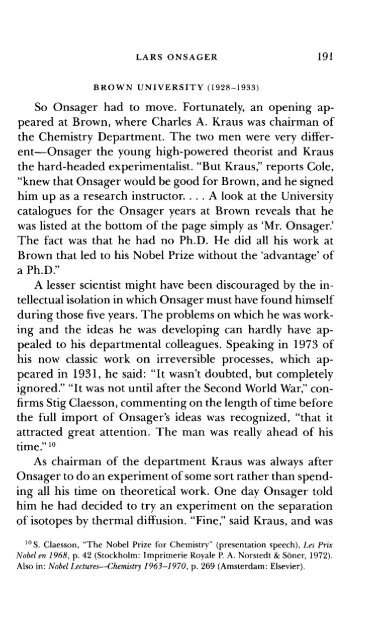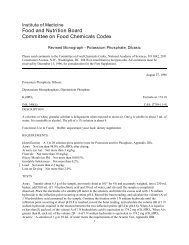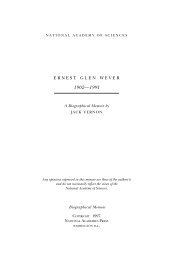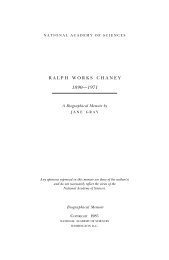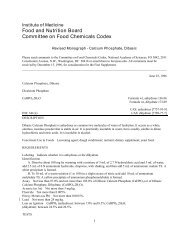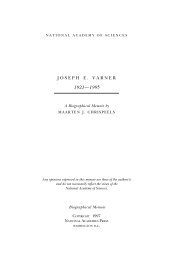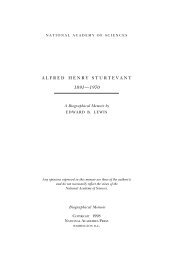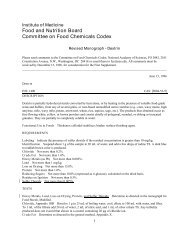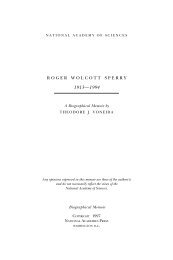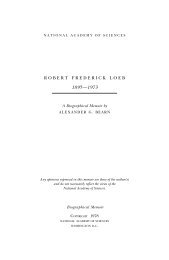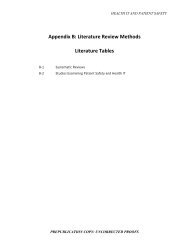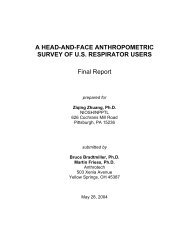LARS ONSAGER - The National Academies Press
LARS ONSAGER - The National Academies Press
LARS ONSAGER - The National Academies Press
You also want an ePaper? Increase the reach of your titles
YUMPU automatically turns print PDFs into web optimized ePapers that Google loves.
<strong>LARS</strong> <strong>ONSAGER</strong> 191<br />
BROWN UNIVERSITY (1928-1933)<br />
So Onsager had to move. Fortunately, an opening appeared<br />
at Brown, where Charles A. Kraus was chairman of<br />
the Chemistry Department. <strong>The</strong> two men were very different—Onsager<br />
the young high-powered theorist and Kraus<br />
the hard-headed experimentalist. "But Kraus," reports Cole,<br />
"knew that Onsager would be good for Brown, and he signed<br />
him up as a research instructor. ... A look at the University<br />
catalogues for the Onsager years at Brown reveals that he<br />
was listed at the bottom of the page simply as 'Mr. Onsager.'<br />
<strong>The</strong> fact was that he had no Ph.D. He did all his work at<br />
Brown that led to his Nobel Prize without the 'advantage' of<br />
a Ph.D."<br />
A lesser scientist might have been discouraged by the intellectual<br />
isolation in which Onsager must have found himself<br />
during those five years. <strong>The</strong> problems on which he was working<br />
and the ideas he was developing can hardly have appealed<br />
to his departmental colleagues. Speaking in 1973 of<br />
his now classic work on irreversible processes, which appeared<br />
in 1931, he said: "It wasn't doubted, but completely<br />
ignored." "It was not until after the Second World War," confirms<br />
Stig Claesson, commenting on the length of time before<br />
the full import of Onsager's ideas was recognized, "that it<br />
attracted great attention. <strong>The</strong> man was really ahead of his<br />
time." 10<br />
As chairman of the department Kraus was always after<br />
Onsager to do an experiment of some sort rather than spending<br />
all his time on theoretical work. One day Onsager told<br />
him he had decided to try an experiment on the separation<br />
of isotopes by thermal diffusion. "Fine," said Kraus, and was<br />
10 S. Claesson, "<strong>The</strong> Nobel Prize for Chemistry" (presentation speech), Les Prix<br />
Nobel en 1968, p. 42 (Stockholm: Imprimerie Royale P. A. Norstedt & Soner, 1972).<br />
Also in: Nobel Lectures—Chemistry 1963-1970, p. 269 (Amsterdam: Elsevier).


